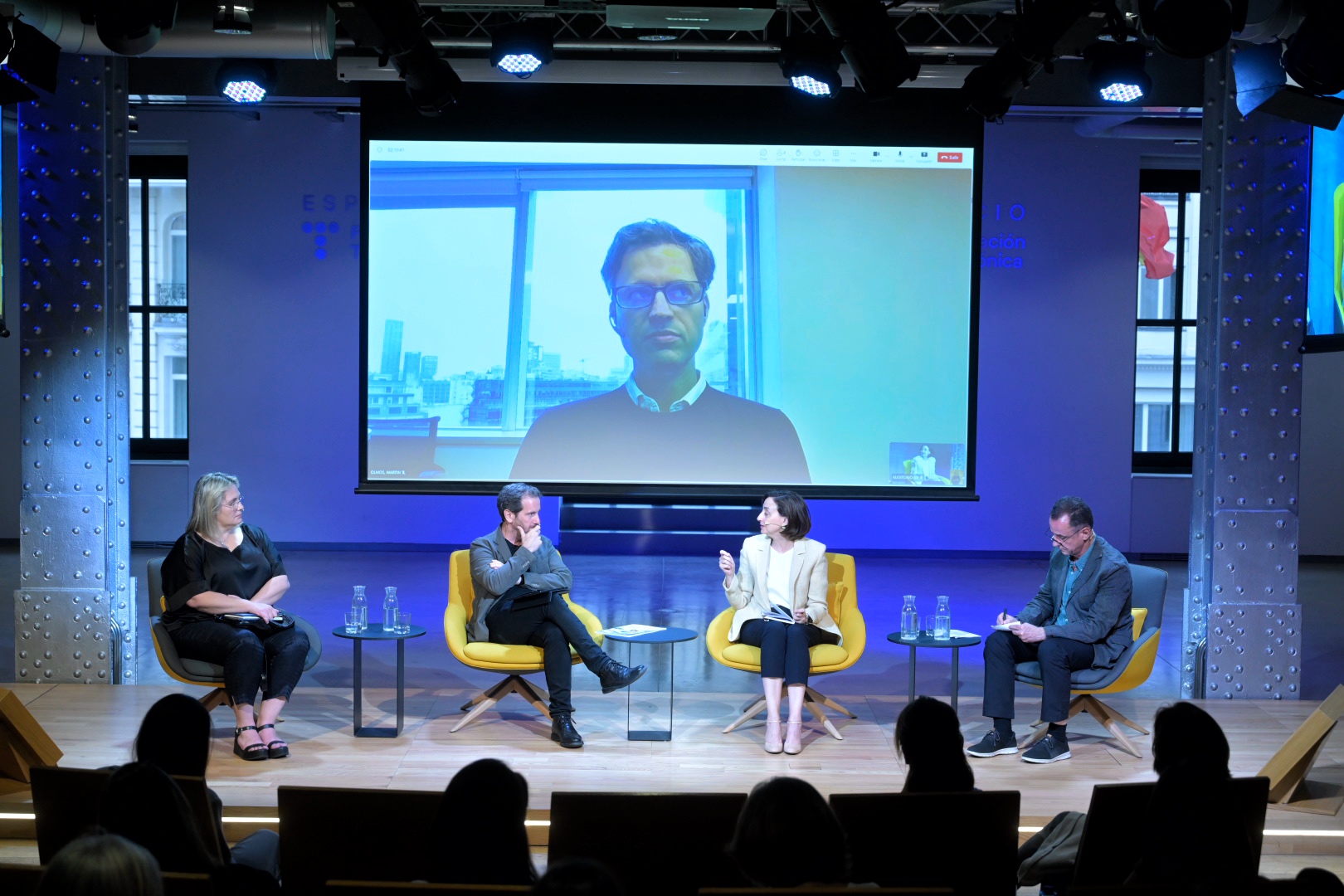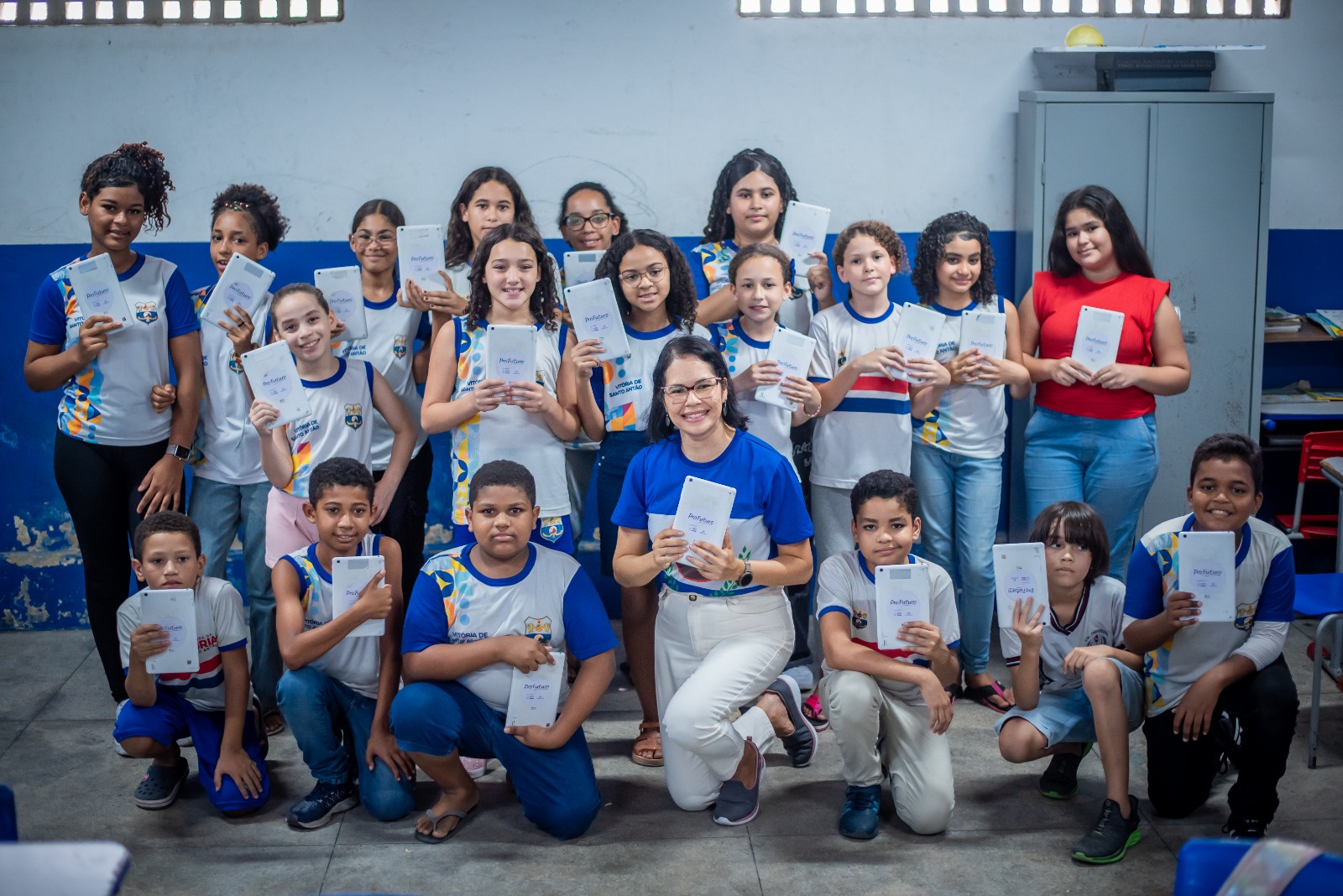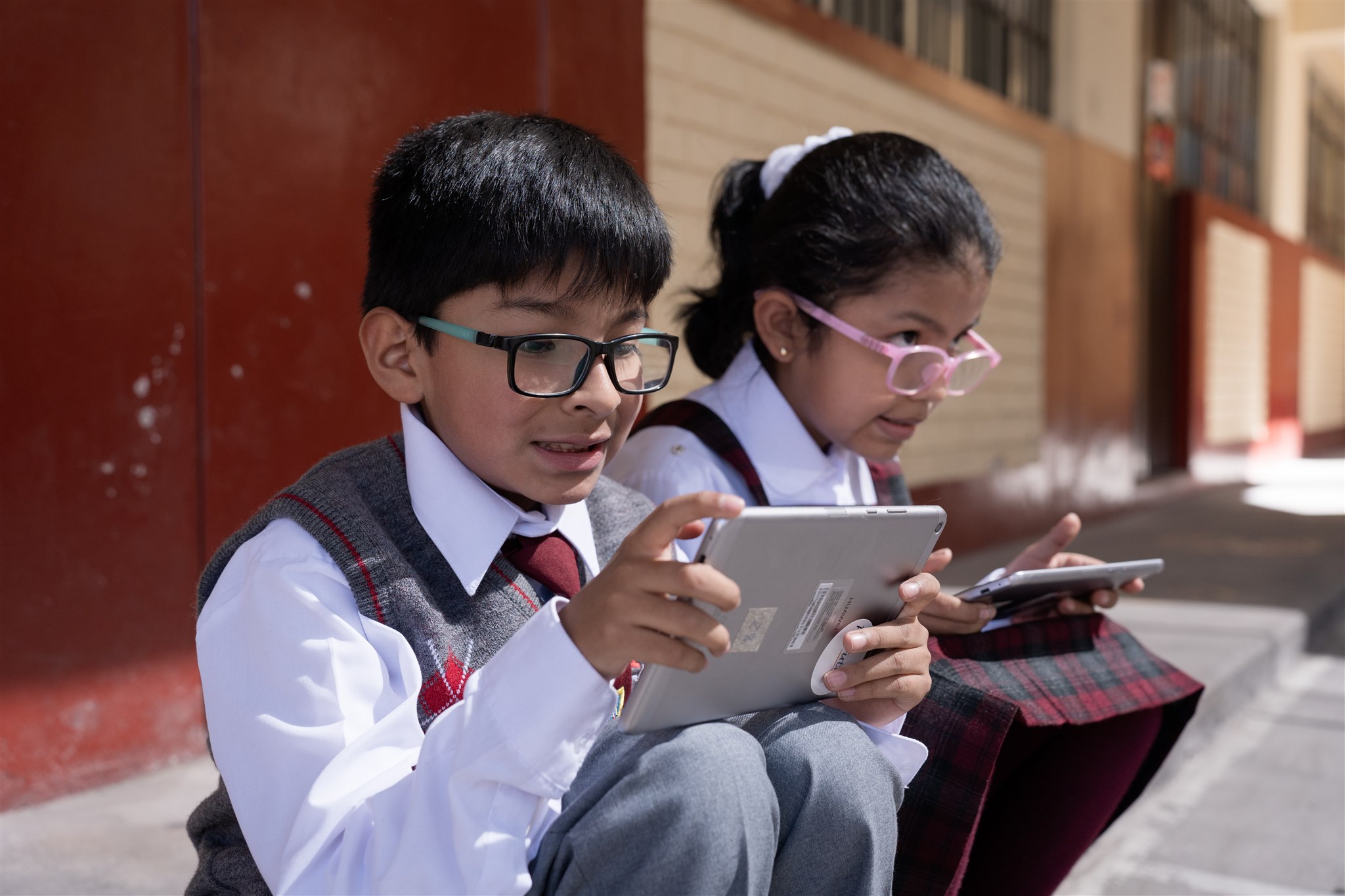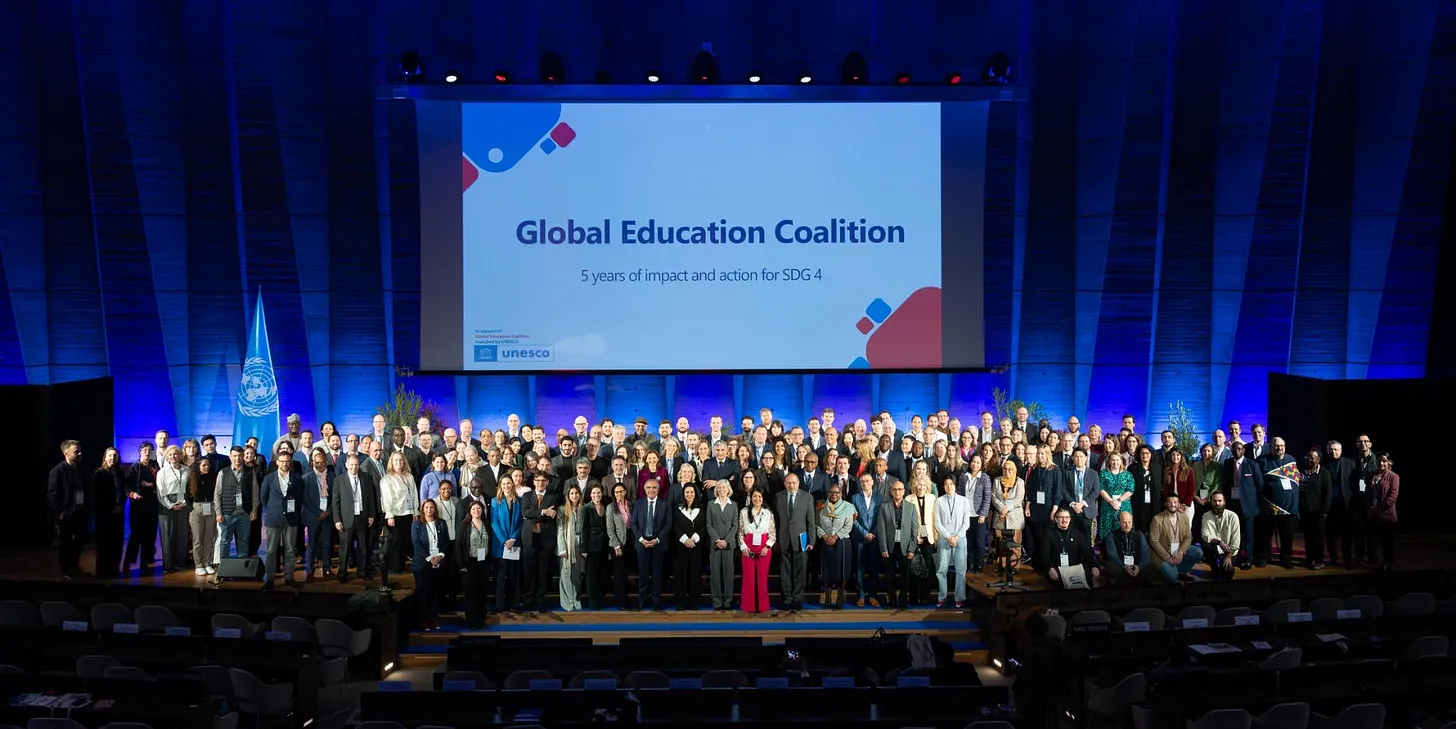With the title “Under construction: The arrival of AI in education in Latin America”, the event, sponsored by the Organisation of Ibero-American States for Education, Science and Culture (OEI) and ProFuturo, the educational innovation with technology programme of Telefónica Foundation and “la Caixa” Foundation, brought together leading experts, institutional leaders and agents of educational change who analysed, debated and forecast the impact of Artificial Intelligence (AI) on the region’s education systems.
The conference was opened by Mariano Jabonero, Secretary General of the Organisation of Ibero-American States (OEI), and Juan Ramón Fuertes, President of ProFuturo Foundation. Mariano Jabonero explained during the opening of the conference that artificial intelligence is beginning to be introduced in the field of education, generating debate as any digital transformation does, stressing that “it is essential to contribute to public policies that guarantee a more equitable and quality education for all”.
For his part, Juan Ramón Fuertes stressed that the ProFuturo educational innovation programme measures its impact with evidence to ensure quality and effective education. This rigorous evaluation makes it possible to improve, scale up and transform realities, guaranteeing meaningful learning in vulnerable contexts: “What really defines us is the way we work: we are a laboratory. We measure, learn, modify and implement learning” The president of ProFuturo went on to say that “we firmly believe that the professional development of teachers is the key to real and sustainable educational transformation, adding that “we continue to walk together towards a fairer, more innovative and humane education”.
The day was marked by the presentation of the report “Under construction: the arrival of AI in education in Latin America“, a pioneering study by the Organisation of Ibero-American States (OEI) and ProFuturo. This analysis has provided a precise and delicate analysis of the most innovative initiatives that, like seeds of the future, are germinating in Latin American educational environments. The report, presented by academic Axel Rivas, professor at the University of San Andrés, unpacked the opportunities that AI opens up for education, especially in vulnerable contexts, while warning about the risks of unplanned implementation and the challenges of ensuring inclusive, equitable and truly accessible technology.
The research reveals that the implementation of AI in Latin American education is still in its infancy. The opportunities and challenges that the report unpacks are summarised as the region faces structural challenges such as the digital divide and the lack of teacher skills, while AI is advancing by offering personalisation of learning that could reduce educational inequalities. However, the risks of dehumanisation, invasion of privacy and potential widening of existing gaps cannot be ignored and present themselves as the major challenge facing the region.
On the positive side, AI offers transformative opportunities to digitise content, optimise instructional planning and address special needs, but it requires a critical approach. Therefore, the report concludes that it is imperative to build critical digital citizenship and ensure public-private collaboration to ethically integrate AI into education systems, turning this technology into a tool for equity and not exclusion.
The day ended with a round table discussion with the participation of Mirna Parra, Operations Manager of CEIBAL; Carlos Magro, President of the Asociación Educación Abierta; Martín Olmos, Chief Executive of CAF’s Digital Transformation Department; and Ana Valero, Director of Public Policy at Telefónica Hispanoamérica; under the moderation of Joaquín Rodríguez, Research Professor at the Institute for the Future of Education in Europe at TEC de Monterrey, who mapped out the opportunities, risks and challenges of AI in Latin American education, sharing experiences, best practices and recommendations for building a solid and humanistic educational future.
In summary, it has become clear that in Latin America, the digital transformation in education faces three main challenges: the lack of basic digital skills that limits the effective use of internet connectivity, even in contexts where access exists; the need for strategic and pedagogical planning to guide the incorporation of technologies such as artificial intelligence, avoiding improvisations that could deepen inequalities; and the urgency of establishing regulatory frameworks and governance models that ensure ethical, inclusive and equity-oriented use.
In addition, the region has a significant lack of internet connectivity: 28 % of the population live in areas with mobile internet coverage but do not have access to it, due to economic barriers, lack of suitable devices and little interest in or knowledge about the benefits of connectivity. Overcoming these challenges requires regional coordination, multi-sectoral cooperation and a pedagogical vision that places learning at the centre of the process.
This meeting, the result of collaboration between the OEI and ProFuturo, stands as a beacon to rethink the role of technology in education and to imagine, with a plural and critical view, a future where artificial intelligence is an ally of innovation, inclusion and human development in Latin America.






